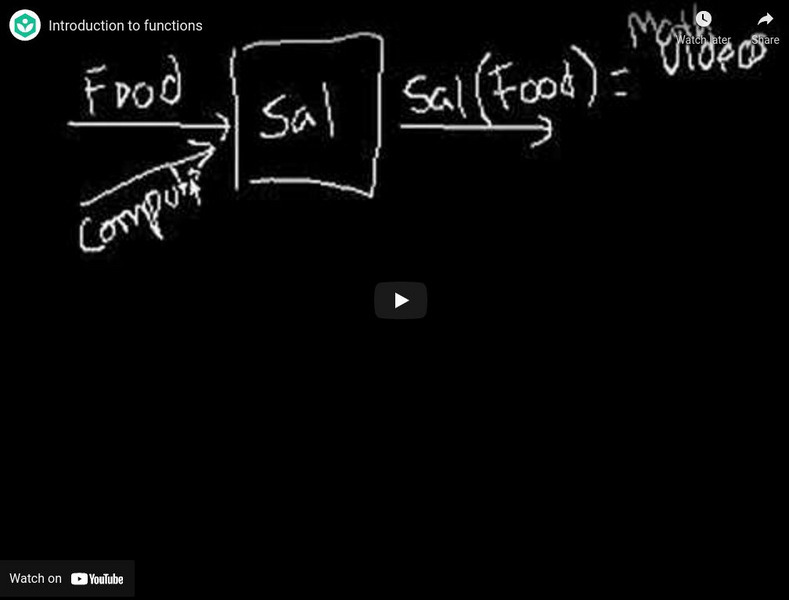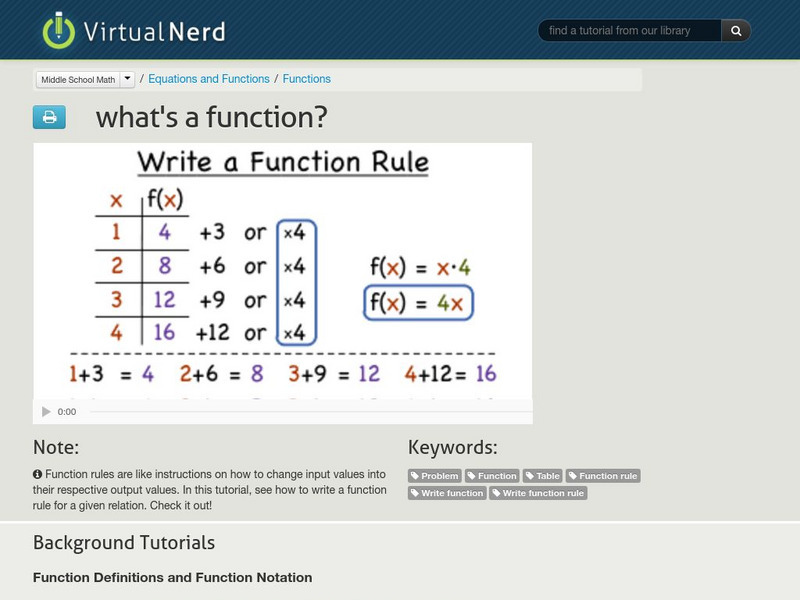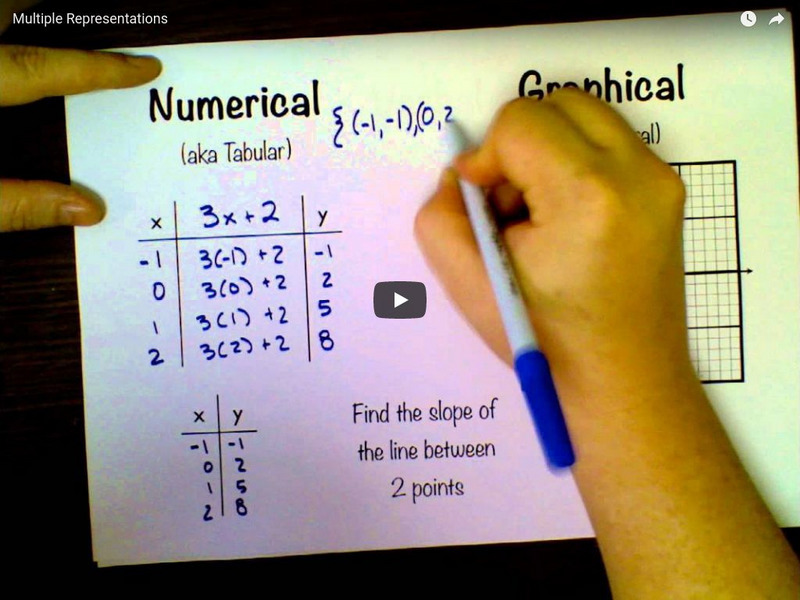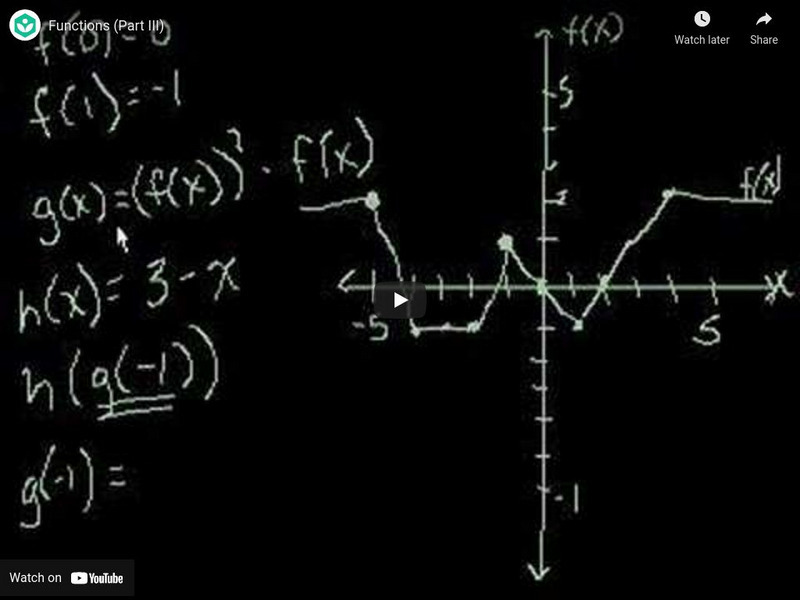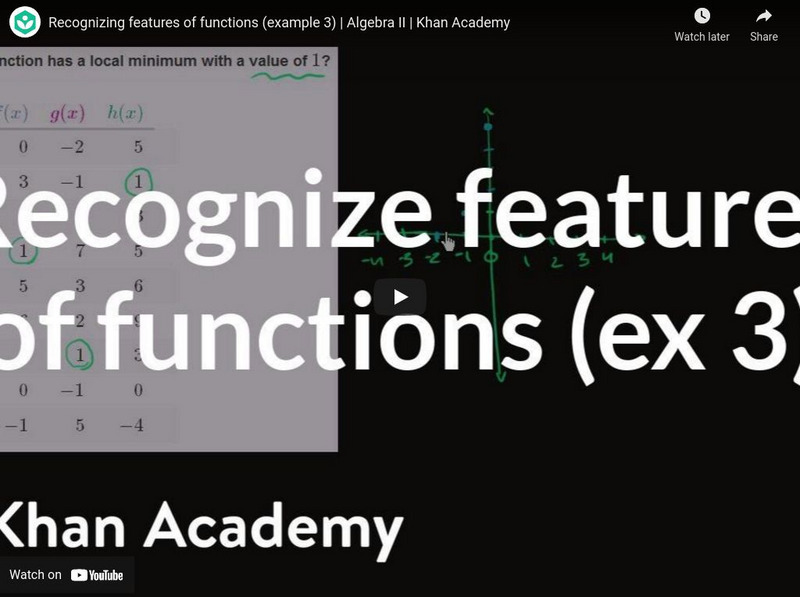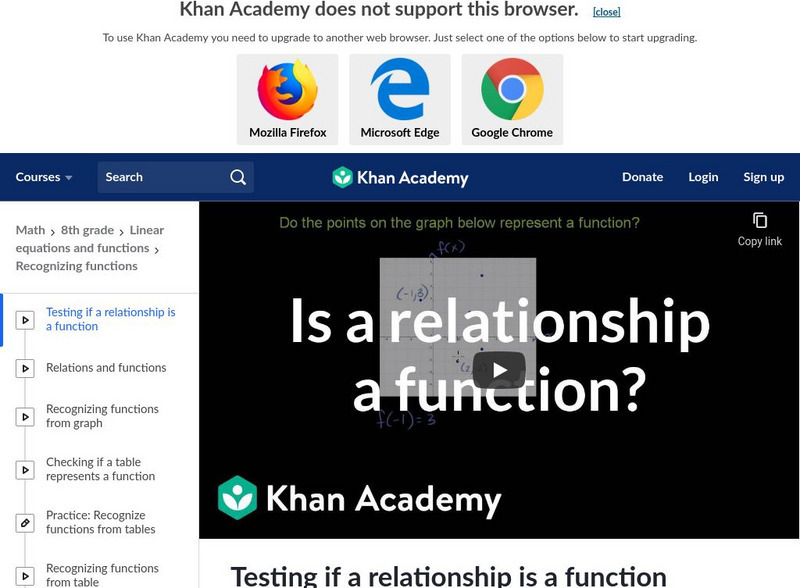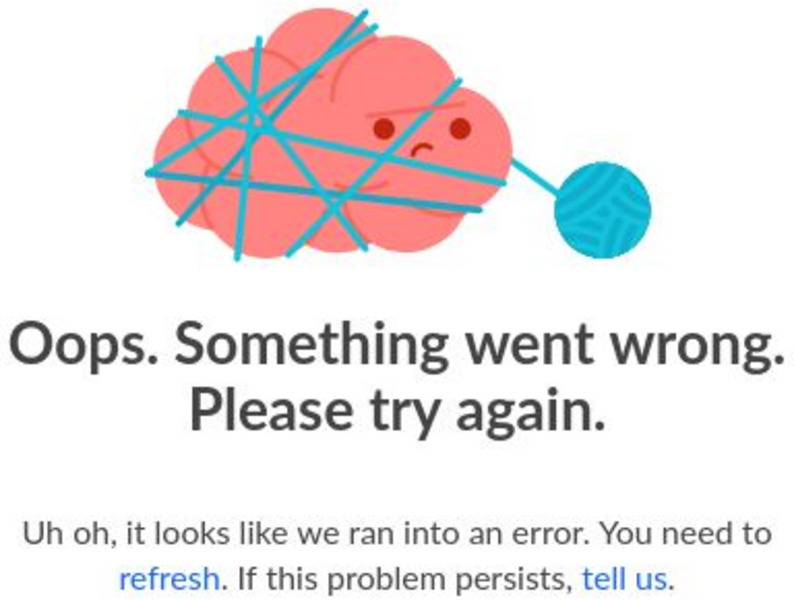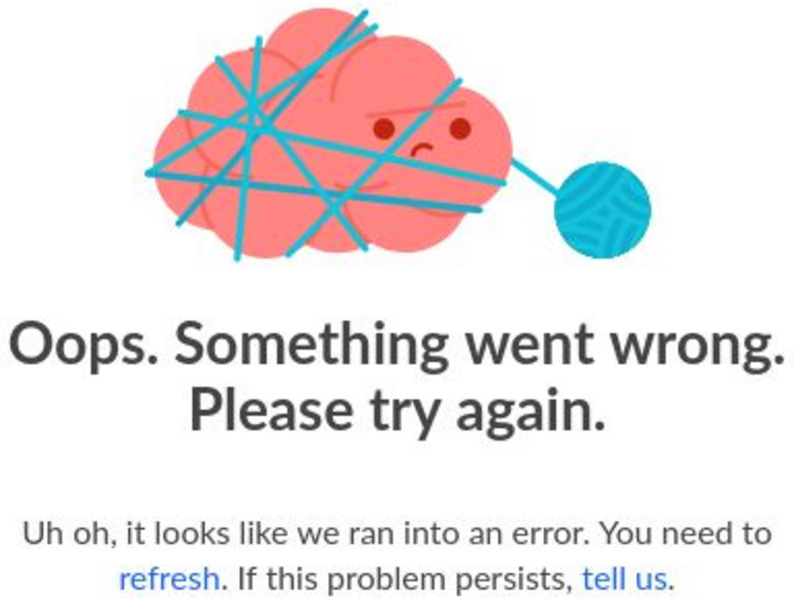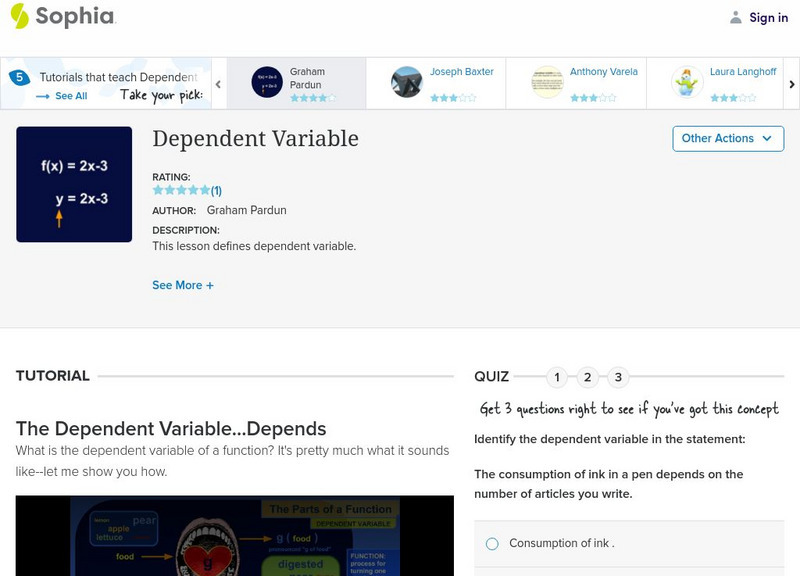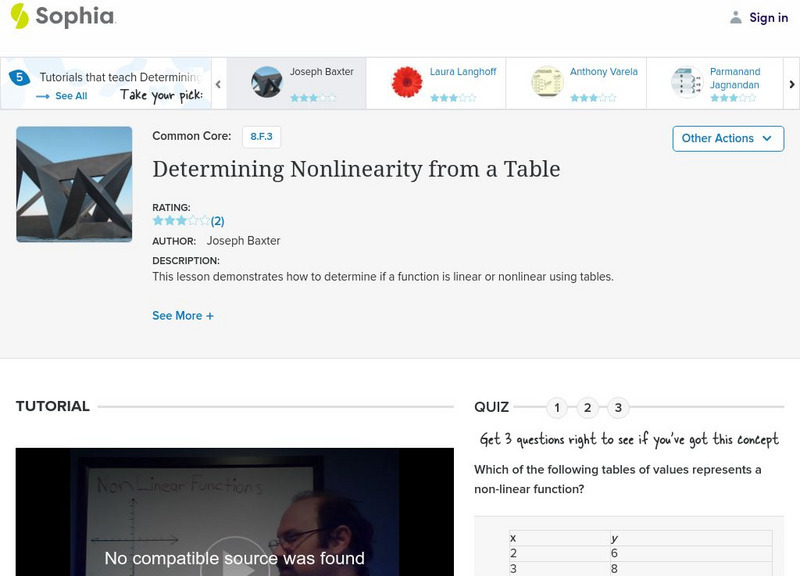Hi, what do you want to do?
Khan Academy
Khan Academy: Algebra: Introduction to Functions
Video giving a general overview of the concept of a function by discussing inputs and outputs. Shows function notation, an example of a piece-wise function and how to evaluate at certain points as well as how to evaluate a composition of...
Virtual Nerd
Virtual Nerd: How Do You Graph a Linear Equation by Making a Table?
To graph a function, you first need a table of values to fit your equation. This video will demonstrate how to make a table and then plot those values to make a graph. [3:23]
Virtual Nerd
Virtual Nerd: How Do You Make a Table of Values for a Linear Equation?
To graph a linear equation, you first need to make a table of values to plot. This tutorial will teach you how to set up this table of values using an example. [5:41]
Virtual Nerd
Virtual Nerd: What's a Function?
Watch this video to see the step by step process on how to write a function rule for a given relationship. [5:22]
Khan Academy
Khan Academy: Algebra: Product of Functions
Video finding the product of a linear function and a cubic function by using the distributive property. [3:00]
Khan Academy
Khan Academy: Algebra: Sum of Functions
Video finding the sum of two quadratic functions. [2:33]
Khan Academy
Khan Academy: Algebra: Quotient of Functions
Video finding the quotient of two quadratic functions and then simplifying by factoring. [6:18]
PBS
Wnet: Thirteen: Get the Math: Get the Math in Videogames
The teams use algebra to save their spaceship in the Asteroids game created by Julia Detar of Arkadium.
Other
Multiple Representations
This video provides a detailed explanation of the different ways to represent a mathematical problem. The multiple representations that are included in the video include symbolic, numerical, graphical and verbal.
Sanford Flip Math
Sanford Flip Math Precalculus: Multiple Representations
This video provides a detailed explanation of the different ways to represent a mathematical problem. The multiple representations that are included in the video include verbal, symbolic, numerical, and graphic.
Khan Academy
Khan Academy: Algebra: Functions 3
Functions and graphs are investigated in this video tutorial. Students learn about the algebra concepts through detailed examples. [9:12]
Khan Academy
Khan Academy: Recognizing Features of Functions (Example 3)
Learn how to find the local minimum value of a function. [3:22]
Khan Academy
Khan Academy: Introduction to Functions: Introduction to Functions
Functions are investigated in this video tutorial.[9:33] Students learn about the algebra concept through detailed examples.
Khan Academy
Khan Academy: Checking if a Table Represents a Function
By watching this video lesson, students will be able to look at a table and determine if Y is a function of X. [1:15]
Khan Academy
Khan Academy: Testing if a Relationship Is a Function
Watch this video tutorial to determine if points on a graph represent a function. [2:22]
Khan Academy
Khan Academy: Function Introduction: Graphical Relations and Functions
Graphical Relations and Functions
Khan Academy
Khan Academy: Analyzing Functions: When a Function Is Positive or Negative
Learn to find out the intervals when the function is is positive or negative.
Khan Academy
Khan Academy: Function Introduction: What Is a Function
Explore what a function is and how to name a function.
Khan Academy
Khan Academy: Analyzing Functions: Comparing Features of Functions 2 Example 1)
Learn about functions and x-intercepts.
Sophia Learning
Sophia: Algebra I: Comparing Linear, Quadratic, and Exponential Functions
Identify and compare linear, quadratic, and exponential functions by exploring sets of data. Assess learning with a quiz. [4:27]
Sophia Learning
Sophia: Cubic and Quadratic Functions
Explore the relationship between cubic, quadratic, and nonlinear functions. Take a quiz to assess learning.
Sophia Learning
Sophia: Dependent Variable
Define the term dependent variable and how to determine which variable is the dependent in a function.
Sophia Learning
Sophia: Determining Nonlinearity From a Table
Use data from a table to determine whether a function is linear or nonlinear. Assess learning with a quiz.





